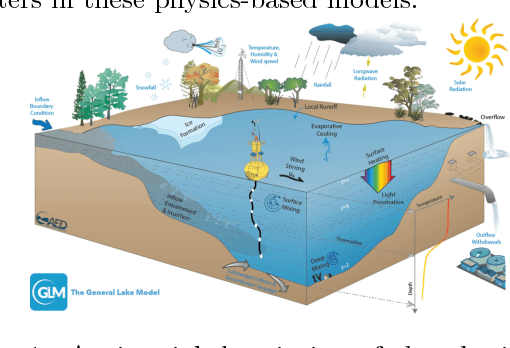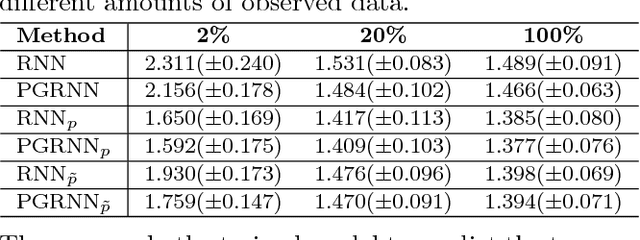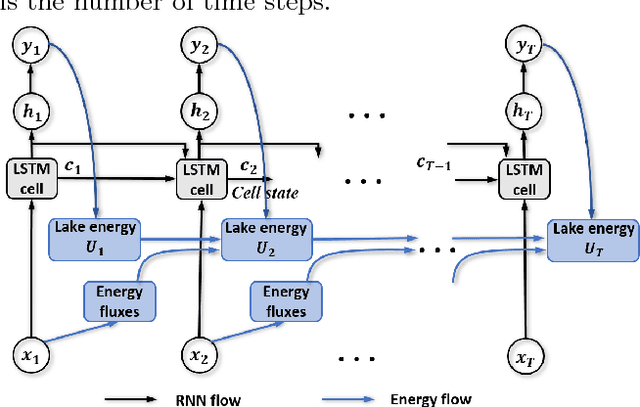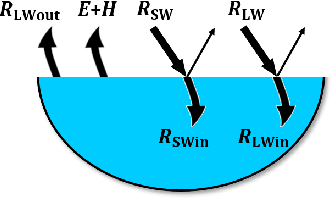Physics Guided RNNs for Modeling Dynamical Systems: A Case Study in Simulating Lake Temperature Profiles
Paper and Code
Oct 31, 2018



This paper proposes a physics-guided recurrent neural network model (PGRNN) that combines RNNs and physics-based models to leverage their complementary strengths and improve the modeling of physical processes. Specifically, we show that a PGRNN can improve prediction accuracy over that of physical models, while generating outputs consistent with physical laws, and achieving good generalizability. Standard RNNs, even when producing superior prediction accuracy, often produce physically inconsistent results and lack generalizability. We further enhance this approach by using a pre-training method that leverages the simulated data from a physics-based model to address the scarcity of observed data. The PGRNN has the flexibility to incorporate additional physical constraints and we incorporate a density-depth relationship. Both enhancements further improve PGRNN performance. Although we present and evaluate this methodology in the context of modeling the dynamics of temperature in lakes, it is applicable more widely to a range of scientific and engineering disciplines where mechanistic (also known as process-based) models are used, e.g., power engineering, climate science, materials science, computational chemistry, and biomedicine.
 Add to Chrome
Add to Chrome Add to Firefox
Add to Firefox Add to Edge
Add to Edge